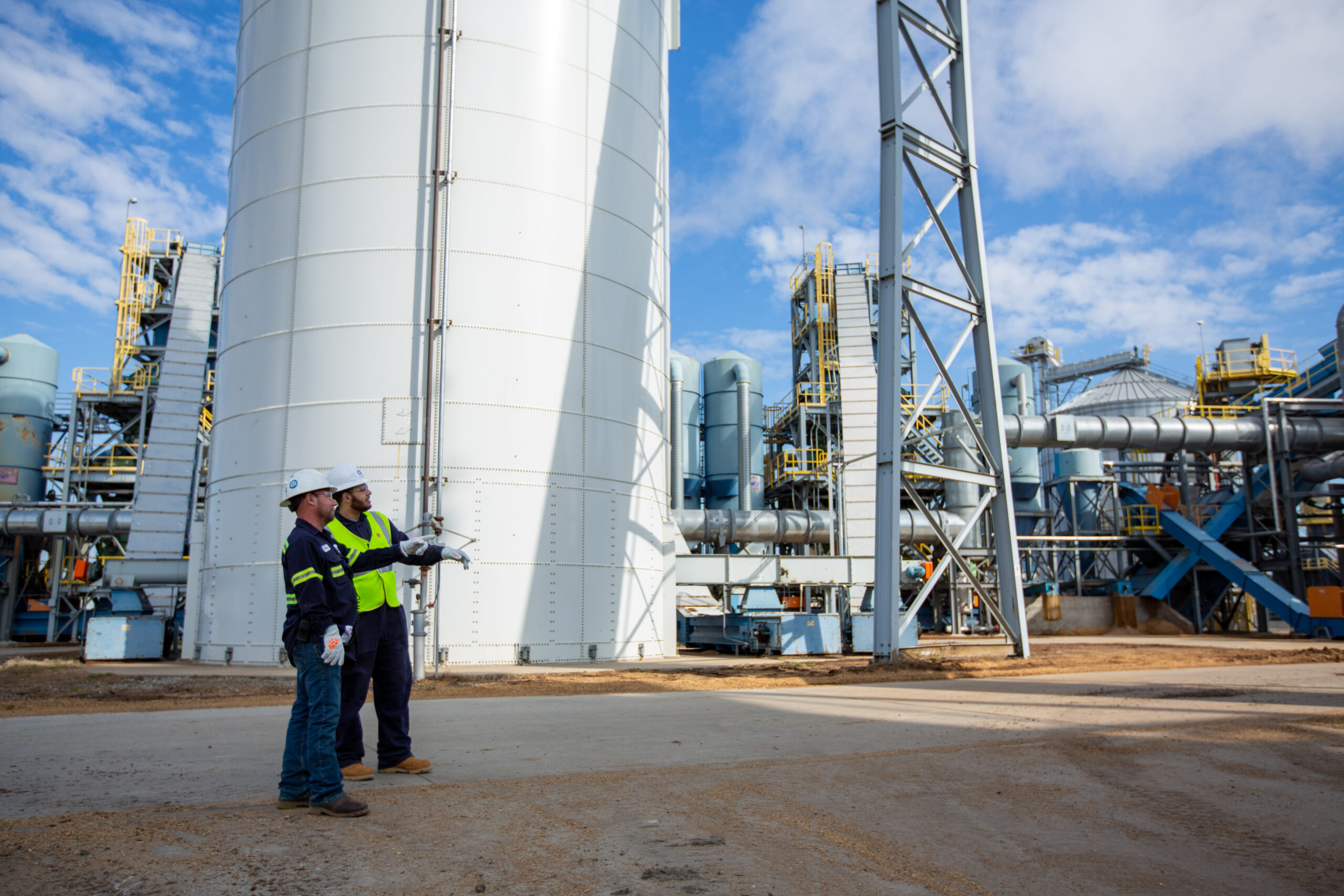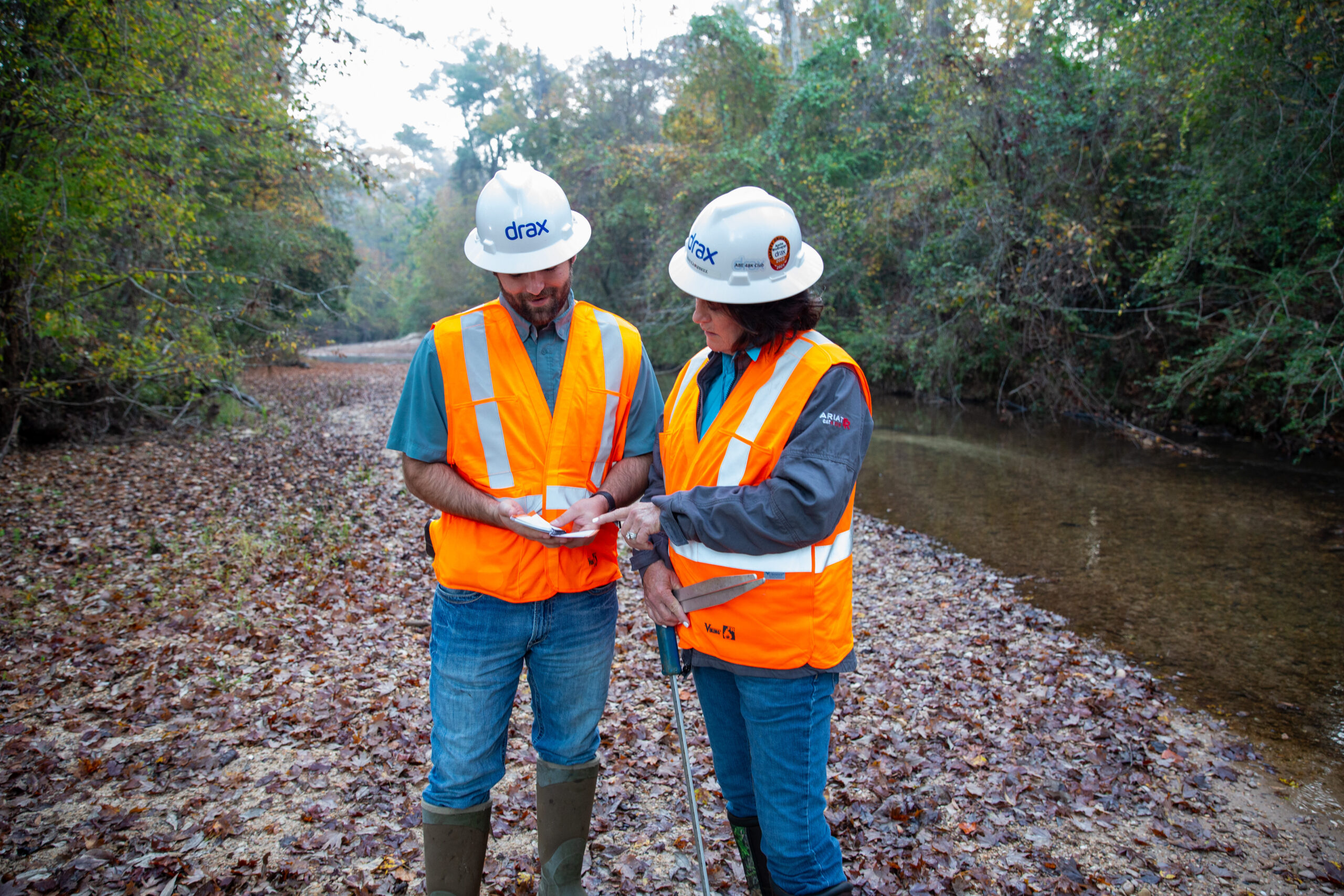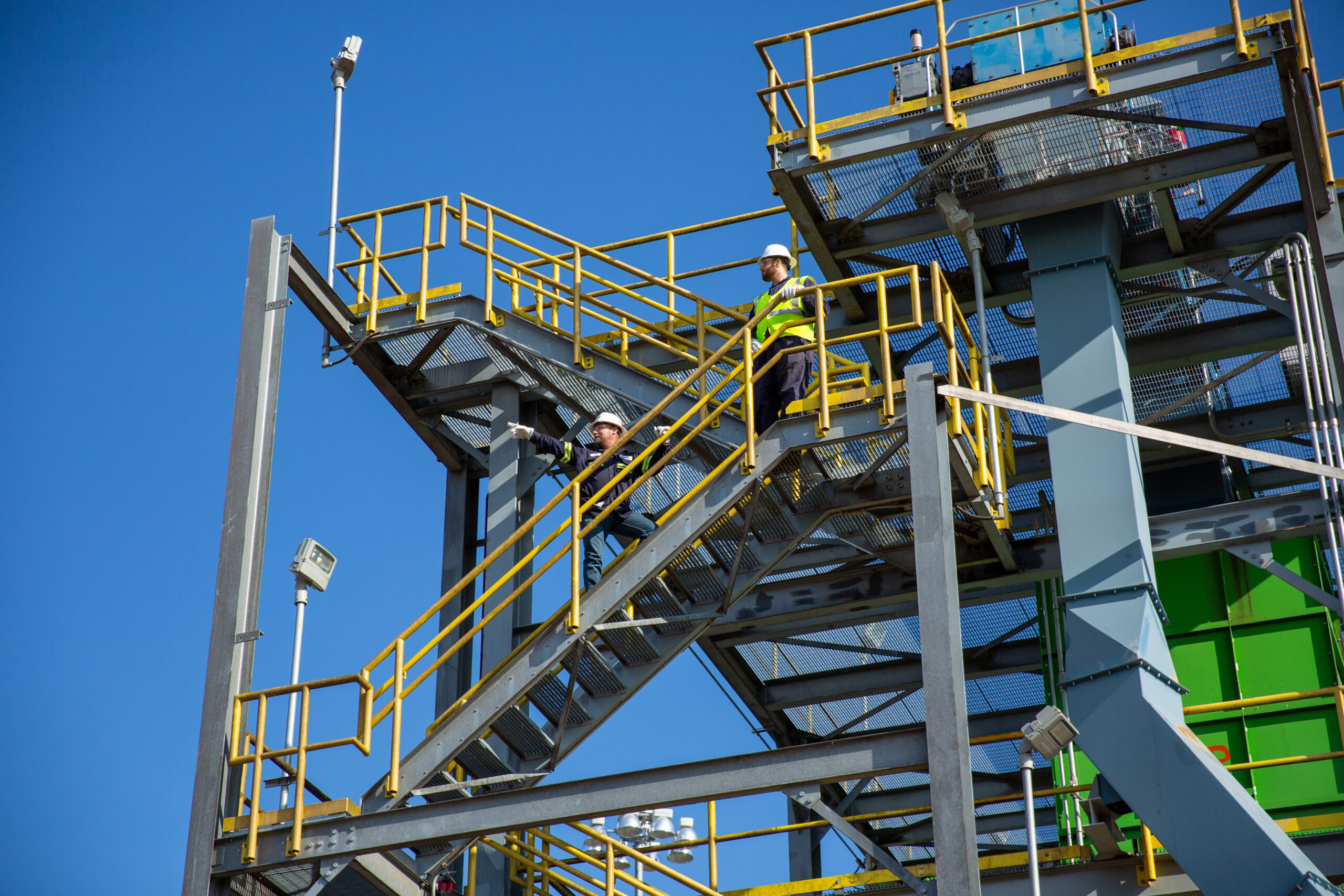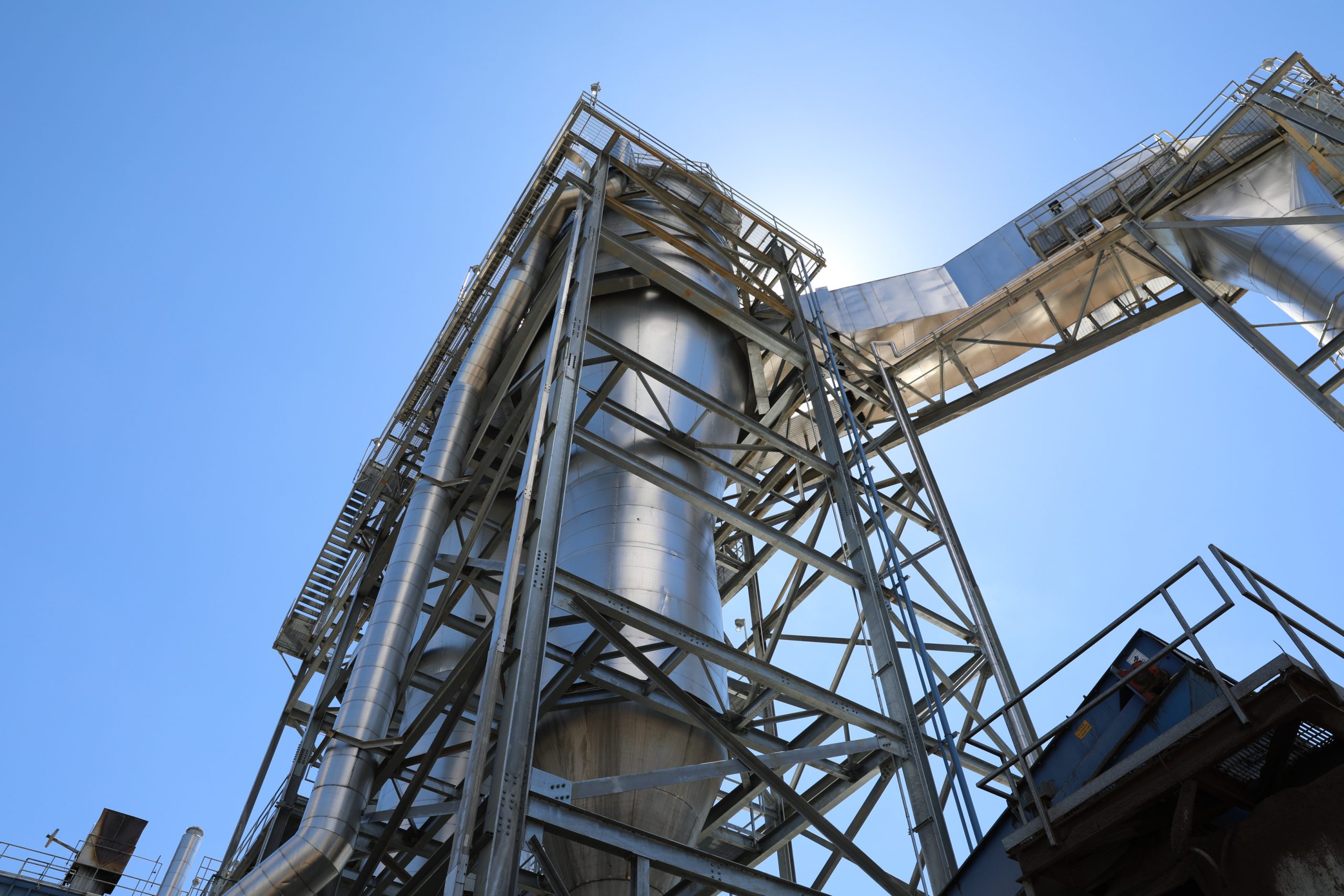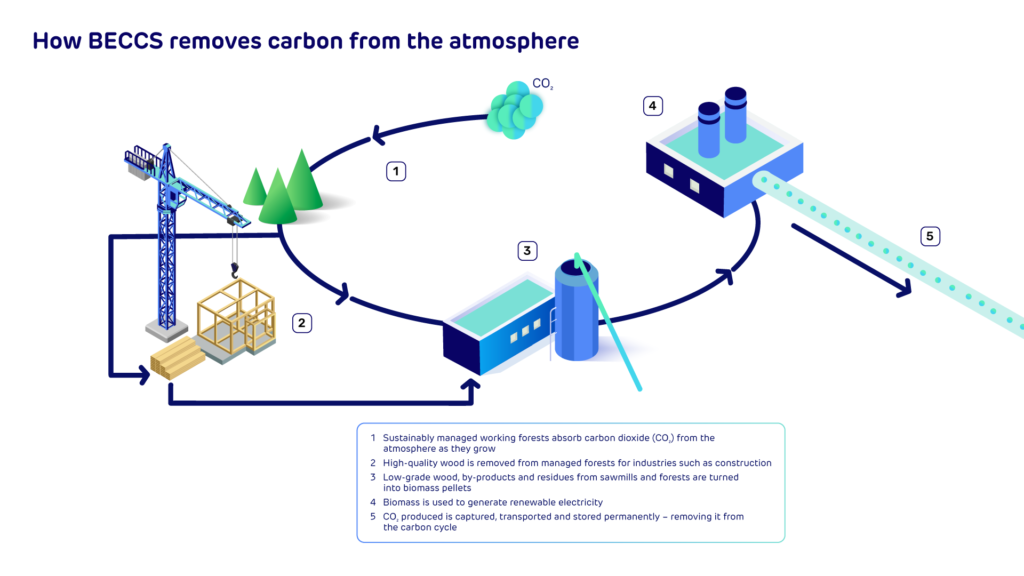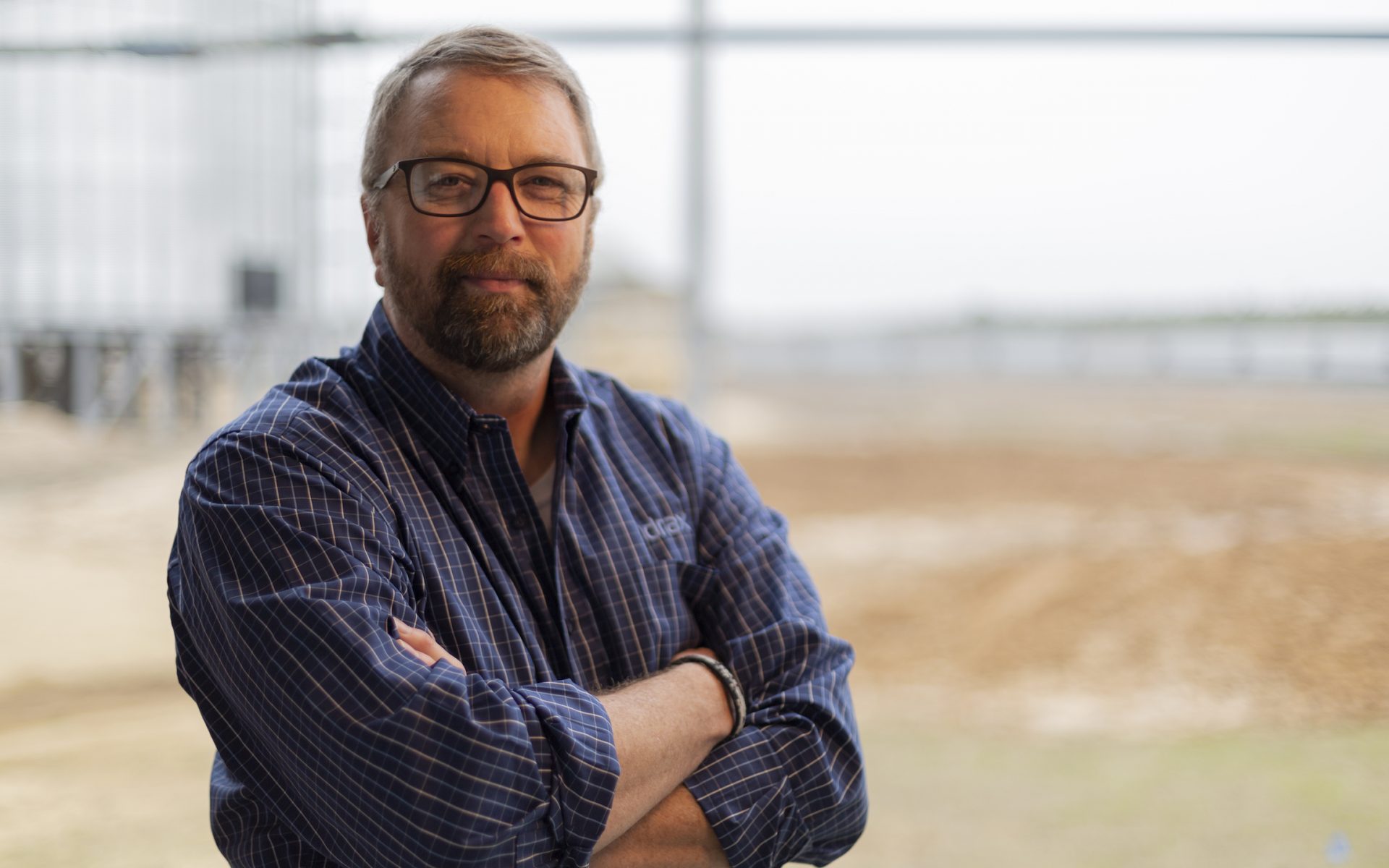
As the world’s leading producer and supplier of sustainable biomass, Drax is committed to ensuring the biomass we source delivers positive outcomes for the climate, for nature and for the communities in which we operate.
To be clear, not all biomass is sustainable or renewable, but when sourced in the right way it does lead to the positive outcomes we are committed to delivering, and we have clear policies and processes in place to ensure this is the case.
As CEO, I understand that achieving and sustaining these positive outcomes needs constant challenge – both internally and externally – particularly with those that don’t share our vision of the critical role biomass has to play in decarbonising our economy.
That is why my team and I dedicate so much of our time to engaging with both advocates and critics of biomass, and whilst these conversations frequently challenge us, they can ultimately make us think differently and change the way we operate for the better.
Biomass remains a relatively new part of the energy mix and it is increasingly important that accurate information is readily available for those wanting to learn more about what we do. We take all claims relating to our business very seriously and investigate them, but equally we feel it is important to identify those occasions where allegations levied against us are misleading or simply untrue.
This week, we have seen inaccurate statements about Drax that have focused primarily on the views of a vocal minority who oppose biomass. Many of these claims have sought to repeat the inaccurate views about biomass, which have for years been promoted by those who are ill-informed about the science behind sustainable forestry and climate change, and those who have vested interests in seeing the biomass industry fail. Given the severity of the false claims made, I wanted to directly address some of the issues:
1. Biomass protects and enhances the environment
Done right, biomass plays a critical role in protecting and enhancing our environment. Not only does biomass displace fossil fuels directly in the production of electricity, it also supports markets for wooden products used in construction that replace the use of other carbon intensive materials like cement.
The United Nation’s Intergovernmental Panel on Climate Change (IPCC) – the world’s leading science-based climate authority, backed by thousands of scientists – restated in their latest report the critical role that biomass will play in meeting global climate targets when sourced sustainably.
The forests that we source our biomass from are managed in accordance with best practices designed to support the health and growth of these forests over the long term. For example, in Canada, forest management has helped stop the spread of disease and forest fires that have destroyed forest ecosystems and the biodiversity which exists there.
In the South of the US, we take thinnings that help to open up the forest canopy and get light onto the forest floor, which in turn supports habitats for insects, wildflowers and species such as quail, which have been in decline.
2. Demand for pellets does not drive deforestation
Demand for pellets is not driving deforestation. Canada has a 0% deforestation rate. In the US South, forest inventory has more than doubled since the 1950s. The demand for pellets is a tiny fraction of overall demand for wooden products, less than 0.1% in the US. In Canada less than half a percent (0.36%) is harvested each year, with pellets being a fraction of that demand.
The sawdust, bark, wood chips, and thinnings as well as diseased and damaged wood produced when the forests are harvested for other sectors makes up a small proportion of the total fibre harvested – just 5% in British Columbia and 4% in the south of the US. (Forest harvest statistics show wood pellet production (woody biomass) accounts for about 4% of material harvested in the US according to UN’s FAOSTAT Forestry. In British Columbia, 74 million cubic meters (m3) harvested through the BC Annual Allowable Cut, converted to metric tonnes (mt) is about 45 million mt. BC exported 2.37 million mt of wood pellets, which is 5.3% of overall harvest).
3. What are Category Two Licences and why does Drax hold them?
Under the Category Two Licence programme in British Columbia, Canada, Drax is eligible to bid for tenure agreements on plots of land that are issued by the British Columbia Timber Sales Programme (BCTS) which is an arm of Government.
The Category Two Licence program is based on a well-established and legislated process.
The bidding procedure is a sealed, online process and if successful, Drax has a power of attorney (POA) in place where all harvesting obligations become the responsibility of the sawmilling company that holds the POA. This practice is permitted under the terms of the BCTS.
It is the sawmill company which controls the harvesting and sorting processes of the forest material and thereby ensures that it gets what it needs. Drax is not involved in the harvesting or sorting process.
We have arrangements with the sawmills we work with to supply us with sawmill residuals – sawdust, chips and bark which is used to produce wood pellets in exchange for the rights to the timber on Category Two Licences. The economics of the wood pellet industry do not facilitate full scale harvesting for the manufacture of pellets.
Drax’s name stays on the licence’s paperwork because the company is the bid winner. This does not mean Drax undertakes any harvesting activity.
Drax currently holds two Category Two Licences in British Columbia. At this time, we are not bidding for any more Category Two Licences in British Columbia.
The BBC claimed that one of the plots of land they featured would not have been harvested had Drax not bid on it – because there were no other bidders. In circumstances where no one bids on a plot of land, the British Columbia Government often puts it up for auction again.
4. The BBC was wrong to give a false impression that logs were being taken from the two featured Category Two Licence areas and taken to our Meadowbank pellet plant in British Columbia
Drax did not receive any material from the two featured Category Two Licence areas in the BBC’s Panorama programme.
The truck the BBC followed and showed taking logs to the Meadowbank facility was, we believe, visiting a different area of forest to the locations of either of our Category Two Licence areas.
In the programme, the reporter says they followed the logging truck “60 miles (95km) north on the highway”, before turning off on the logging road. We don’t know where they went but we know the licenses that are in our name are 350km away from our Meadowbank facility.
The logs on that truck were what’s categorised in the forestry industry in British Columbia as left-over material that sawmills don’t want.
One of the two Category Two Licence sites the BBC focused on was felled and cleared by the sawmill company in December 2021. Whilst this sawmill did provide us with residuals relating to our agreement with them, it did not come from this site.
The forest companies control the sorting and harvesting process, to ensure they get the materials they need. Drax is not involved in that process.
Forest companies harvest the forests and cut the trees into log lengths and sort the portions by multiple product class. Usually this falls into two grades – sawlog grade logs for sawmills and pulp logs for pulp mills.
Sawlogs go to the sawmills and the rest go to where there is a market for them – if there isn’t a market, it becomes left-over and we may take it.
5. Why did the programme show slash being left on the forest floor after harvesting?
Slash is a term used for the very low-grade material which is not merchantable.
Under the British Columbia Government harvesting rules, slash can be left on sites for up to two years to dry out before being taken to a pellet mill or burned on site.
The company we gave the POA to for the harvest of this site will ensure the slash is managed appropriately in line with the British Columbia Government’s regulations.
6. Drax’s Category Two Licences are not areas of primary forest
Primary forest is a term which organisations interpret differently. Drax, and many other organisations, refer to the UN Food and Agriculture Organization definition for primary forest which indicates that primary forests have “no clearly visible indications of human activities”.
Drax has not acquired any Canadian licences for forests designated as primary forests under the UN Food and Agriculture Organization definition.
The BBC’s footage clearly showed that one of the Category Two Licence sites had a nearby road and in the British Columbian Government harvest plan for one of these sites there is a specific requirement for the “700 Road to be screened”.
In our opinion this is evidence that this area was not primary forest and we did not take any material directly from this site.
Areas identified by the Government for harvest are carefully selected by them using an exhaustive list of environmental criteria that includes but is not limited to; old growth management; landscape and site level biodiversity; age class distribution (old growth); riparian management; watershed management; wildlife management; visual quality; species at risk; rare and sensitive ecosystems; cultural heritage resources; soil quality; species diversity; site productivity; as well as social and economic considerations.
7. Does Drax use logs which should instead be sent to sawmills to make wood products?
No. To date in 2022, the material used in our Canadian pellet plants includes 81% sawmill residuals, 8% harvest residuals and 10% roundwood, including pulp logs (grade 4).
All materials are sorted and graded by the sawmill/lumber operator before delivery to Drax. The Grade 4 logs that we use are not higher quality logs. These can be pulp grade logs, but if there is no market for pulp logs then when the sawmills harvest and sort the logs, they become leftover from sawmill material and are often then used by Drax to make pellets.
Commercial forestry is driven by a demand for high grade saw logs, which are processed in sawmills, with the resultant timber then used in construction and manufacturing.
The material that is not used for these purposes – because it is often diseased, mis-shapen or uneconomic – could be used for producing biomass, in line with our sourcing policy.
8. Rigorous independent oversight plays an important part in the governance of the biomass industry
Drax adheres to all required legislation, regulations and standards which govern the energy sector, Drax’s businesses and its supply chains. It ensures the ongoing sustainability of its feedstock in accordance with the required legislation.
The carbon accounting rules that underpin these regulations and standards have been developed in accordance with world leading international science from the UN IPCC 2019 Refinement to the 2006 IPCC Guidelines for National Greenhouse Gas Inventories and are derived from international frameworks such as the EU’s Renewable Energy Directive (“RED”).
Companies which use biomass are required to measure and report on supply chain emissions. These requirements are unique in that they are stricter and more onerous than what is required for other energy generation technologies. As a result, Drax reports on its full supply chain and associated emissions to Ofgem under legislative requirements (including the Renewables Obligation and CfD).
Drax also provides extensive information to voluntary certification schemes, such as the Sustainable Biomass Program (SBP), FSC and SFI which provide third party oversight to ensure the material we are using meets the required sustainability standards.
We publish a comprehensive overview of this data in our Annual Reports (including data on Scope 1 and 2 emissions and emissions intensity figures which are audited).
Drax makes all data and information on its emissions and catchment areas, including evidence of forest growth, growing stock, and sequestration rates (forest productivity), available for public consumption. Our supply chain emissions are reported in full in our annual report and accounts. We report all of our emissions (scope 1, 2 and 3).
In addition to this, due to the British Columbia Government’s rigorous legislative system and British Columbia Timber Sale’s SFI certification, we have every confidence that areas selected for harvest, including under the Category 2 programme, are done so to fulfill a government management objective.
This is done as part of the long-term harvest planning process by government, with industry and other stakeholders who have interests in the land, including First Nations and the general public.
Sustainable biomass is increasingly being recognised by governments and scientists around the world as having the potential to play a critical role in tackling the climate crisis, supporting communities and contributing to energy security, and I hope this information reiterates our commitment to sustainability which sits at the heart of our purpose and everything we do.
Will Gardiner, Drax Group CEO
View our response to the BBC Panorama episode here and more information on biomass sourcing from Canada here.
